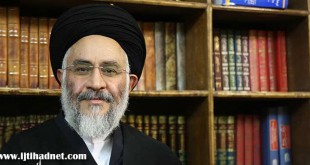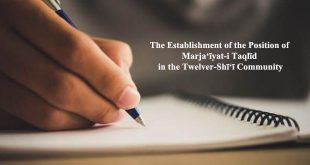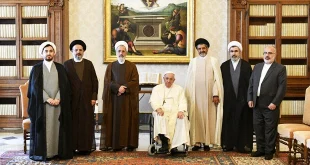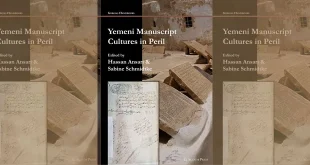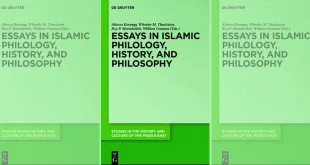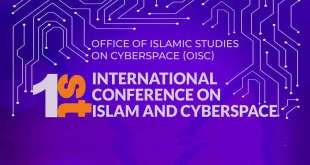Islam has strongly emphasized the concept of decency and modesty in the interaction between members of the opposite sex. Dress code is part of that overall teaching. There are two verses in the Qur’an in which Almighty Allah talks about the issue of decency and hijab as defined earlier. The …
Read More »War & Murder Raging in the Middle East by the Name of “Religion”
Ayatollah Mohaghegh Damad stated that unfortunately with unrealistic interpretations, misunderstandings and religious distortions, human beings have subconsciously turned to polytheism and fought with others in...
Read More »Call for Papers: 6th Annual Symposium on Muslim Philanthropy & Civil Society
The Muslim Philanthropy Initiative (MPI) of the Indiana University Lilly Family School of Philanthropy invites you to present at the 6th Annual Symposium on Muslim Philanthropy and...
Read More »The Establishment of the Position of Marjaʻīyat-i Taqlīd in the Twelver-Shīʻī Community
The marjaʻīyat have played an important role in the political life of Shīʻī Iran. They strongly resisted foreign economic and political influences. They collaborated with Iranian liberal forces to serve the case of...
Read More »From Najaf to Qom: The Requirements for the Expansion of Shīʿah Islāmic Relations with the Christian World
Unfortunately, the Shīʿah Islāmic sect, unlike the non-Shīʿah sects, does not have effective and deep relations with Christianity, especially with the Vatican....
Read More »First Iran-Croatia Halal Trade Conference Held in Tehran
Iran Chamber of Commerce, Industries, Mines and Agriculture (ICCIMA) is hosting the first Iran-Croatia halal trade conference during June 18-20.....
Read More »New Released: Yemeni Manuscript Cultures in Peril
Yemeni Manuscript Cultures in Peril contributes to the history of books and libraries and their role in the scholastic culture in Yemen, past and present. The contributions brought together in this volume address a wide spectrum of aspects....
Read More »Essays in Islamic Philology, History, and Philosophy
The articles in this volume are dedicated to Professor Ahmad Mahdavi Damghani for the breadth and depth of his interests and his influence on those interests....
Read More »Call for Papers: International Conference on Islam and Cyberspace
The First International Conference on Islam and Cyberspace will be held by the Office of Islamic Studies on Cyberspace (OISC), at the first half of 2023....
Read More »What Is the Ruling on Bank Interest in Non-Muslim Countries?
I wanted to ask a question regarding interest which you get from the bank. I mean are we allowed to accept it, because this is what we call "riba" and I heard that taking it is...
Read More » Ijtihad Network Being Wise and Faithful Muslim in the Contemporary World
Ijtihad Network Being Wise and Faithful Muslim in the Contemporary World

